The Support Group at Swiss TPH
In 1989, staff of Swiss TPH founded the “Support Group at Swiss TPH”, an association of employees and friends of Swiss TPH with a constitution, a managing board and an annual general assembly. Anyone can become a member.
The aim of the association is to provide support to people and associations in resource-poor countries – particularly in the sense of helping people to help themselves. The funds raised are used entirely for the benefit of the projects.
Regulations for awarding support to a project
- Support of a local implementing agency/organization
- Support of poverty reducing measures
- Helping people to help themselves
- Sustainability
- Good cost efficiency
- Support of projects with clear objective, well defined start and end, prolongation possible after assessment of previous phase
- Detailed project description with transparent budget
- Maximum budget: CHF 3,000 - 5,000
- Outlining of the partner’s own contribution as part of the budget (contribution can be working hours or materials, not necessarily financial)
- Contact person of Swiss TPH to oversee the project on site
How to Apply for Project Funding
Become a member or donate

Contact
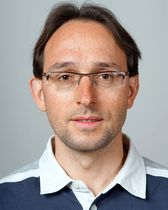
Peter Steinmann
PhD, PD
Head of Unit
+41612848229
peter.steinmann@swisstph.ch
Selected Documents
Annual Report
Project Highlights

School Renovation in Botembo, DRC
The Basel-based association DarsiLaMano supports the École d'Unité in Botembo in North Kivu, which, unlike most schools, is open to all religions and accepts children who cannot pay school fees. The school building had major deficiencies, which were remedied last year with the financial help of the Support Group. The leaking roof was repaired, walls in danger of collapsing were renovated and plastered, and missing doors and windows were installed. In addition, the water connection was renewed and new signs were put up.

Water Tanks for Children's Home, Uganda
The Sky is the Limit - Integrated Children's Center in Fort Portal in western Uganda provides basic medical care, food, shelter and social welfare for numerous children from the region who are affected by poverty, as well as a basic education in the school founded for this purpose. The primary school enables about 300 children to attend school; about 30 children live permanently in the facility. To ensure the water supply, the Support Group financed the construction of two water tanks, which were completed last year despite difficulties caused by the pandemic.

Literacy Courses in Chad
In order to combat illiteracy among young people in Batha and contribute to their education, the NGO Femme Avenir aims to teach young people over a period of 10 months. The Support Group financed the purchase of school desks, teaching materials and the construction of toilets. Due to the pandemic, there were delays here as well, but at the beginning of March this year, the first courses were finally able to start.

Rehabilitation Project in Myanmar
The Myiatta Arr Marn association aims to make a sustainable contribution to improving the socio-economic status of people affected by leprosy and to promote their self-reliance and standing. The Support Group supported the project by financing 60 male and female young pigs. These were distributed to 30 families in three former leprosy colonies in order to provide them with a basis for pig breeding and thus combat poverty. The families have to pay back the contribution after one year, either in the form of two young pigs or the equivalent in cash, so that more families can benefit from the support the following year.

Moyo Wangu Environmental Centre in Kenya
The self-help project Msumarini, founded 20 years ago in a small village on the north coast of Kenya, aims to improve the quality of life of the inhabitants and to stop the increasing rural exodus. In the newly founded environmental centre Moyo Wangu, people are learning how to build solar lamps, cook, bake and disinfect drinking water with solar energy, avoid waste, up-cycling and traditional farming methods. The Support Group funded the material for the construction of solar cookers and dryers, tools and seeds for the raised beds and a solar system for mobile power supply.

STEPS Learning Programme, Philippines
In the Philippines, about 40% of primary school students in public schools cannot read and only 20% of 3-4 year olds attend kindergarten. The Worldwide Familia Mission in Bohol developed STEPS (Specialised Training and Education for Preschool Students), a learning programme to prepare preschool students for public school. STEPS offers 10-month courses in which 40 to 50 children learn daily in two to three groups using combinations of various modern teaching methods and audio-visual resources. STEPS has already been established in several locations and is now extended to other islands. The Support Group provided the financial means for the purchase of materials for the schools.

Helenvale Poets, South Africa
Helenvale, Port Elizabeth, is strongly affected by drug and gang crime, unemployment and housing shortages. The young people there are often on their own, without leisure activities and creative incentives. This leads to many social problems. The Helenvale Poets project was initiated in 2011 and offers young people a meditative, creative and productive space that members describe as “therapeutic”. Participants work on and develop their verbal art products with the help of mentors. In 2017, the Support Group financed the purchase of 10 laptops for the young artists. To date, they have already produced 7 books of poems.

Pailin Kids Project, Cambodia
Pailin province is considered one of the most heavily mined regions in the world, with very high child abuse rates and significant malnutrition. Only a few children go to school regularly. The Community & Home-Based Care for Pailin Kids project aims to create a safe place for the children in Pailin where they get a home, food, education and basic health care. Orphans find a permanent home there, but the project also takes care of out-of-school children who have to work and cannot go to school. The Support Group helped the project to set up a library and to build a playground for the children.

Health Centres Guatemala
The villages of San Marcos and La Romana are very isolated in the tropical rainforest of Guatemala. The majority of the inhabitants are indigenous Maya living in extreme poverty and having no access to health services. The Support Group financed the material for the construction of two minimal health units (MHU), comprising of one room divided by half inside, a latrine and access to solar power. These MHUs also enable the operation of a syndromic surveillance platform for zoonotic disease control in this region.

Project for People with Disabilities in Ethiopia
People with disabilities often face discrimination and exclusion in Ethiopia. Children are cast out by their families, as adults they end up homeless and unemployed. The project "Emmanuel" has the vision of enabling people with disabilities to live independently. In a workshop in Soddo, disabled people produce and sell crutches , wheelchairs and twikes. Those who cannot afford to pay for the mobility aids, can work off their debts by helping in the production of crutches. The Support Group financed the material for new mobility aids.
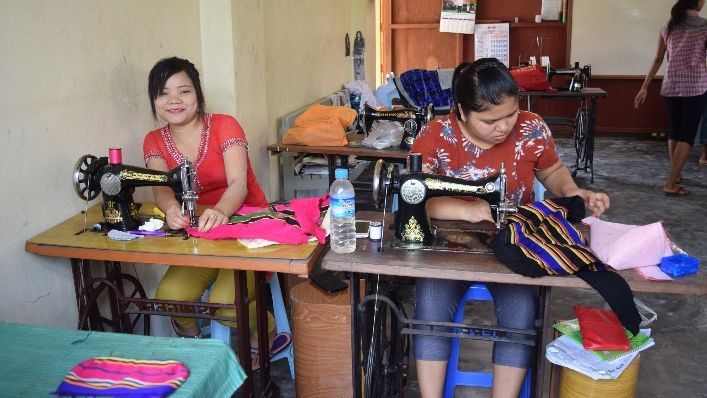
Chin Cherry Sewing Project in Myanmar
The Chin region is rich in local traditional fabrics. The Chin Cherry project is an income generating project that aims to promote small business. In regular sewing courses in the youth centre in Kalaymyo, sewers learn how to produce modern bags with the traditional cloths to generate an income source for themselves and their families. The Support Group financed 7 sewing machines for these workshops as well as 8 weaving looms for the women's group in Minlah that produces the traditional Chin fabrics.

School Garden Project in Ecuador
The Support Group supported a school garden pilot project initiated by the NGO Cielo Azul in the community of Cambugán in the highlands of Ecuador. The self-managed fruit orchards and vegetable gardens have been laid out according to ancestral knowledge, using old, Andean cultivation methods. The students help to plant local crops of the Andean region like amaranth, medical plants and root vegetables. The harvest of the school garden is now sufficient to provide for the student’s lunches three days a week. Any excess crops are distributed amongst the most financially disadvantaged families.

Reforestation Project in the Philippines
Together with the local government and with endorsement from the Swiss Embassy the local youth group Youth Earthsavers Movement (YES-Move) launched a project to reforest and rehabilitate the mangrove areas in seven villages (barangays) around Lavezares in Northern Samar. Local fishermen were actively involved through information campaigns and training courses, so that they themselves can protect and manage the mangrove forest in the long term. The Support Group funded the project. Meanwhile, the volunteers planted 94,500 mangrove seedlings, conducted training sessions and installed 14 information boards.

Maternity Renovation Project in Togo
Volunteer members of the Peace Corps based in the Savanna region north of Togo addressed us in 2012 for supporting the renovation of the maternity hospital in Timbou district that consisted basically of just one room, allowing not much privacy to the pregnant women giving birth (up to 4000 each year) and the HIV-positive and AIDS patients that are treated there as well. During its renovation parts of the old building were demolished to make rooms for windows and doors, new walls and a ceiling were installed and due to very efficient use of resources, the building is now also supplied with electricity and connected to a newly built water tower.

Home for the Elderly in Indonesia
The 'Hosiana' house in Tomohon, North Sulawesi, Indonesia, originally planned as a retirement home, opened its doors beginning 2016. The operators realised soon that a day care house would better match the needs of the elderly and their families, thus the concept was revised. The old people come now in the morning to rest, play cards, cook together or do some gardening and go home in the evening. Thanks to the financial assistance of the Support Group, furniture and other equipment for the Day Care House could be purchased. There is a great demand for more day care homes of this kind in Indonesia.
Project Partners
Responsibilities
Chairman: Peter Steinmann, Cashier: Helena Greter
Project Management: Christian Auer, Helena Greter, Michael Käser, Tanja Barth-Jaeggi, Fabian Schär, Leon Stieger, Anna Stürmann
Auditors: Till Voss
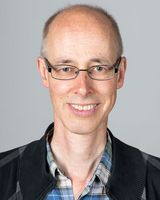 Christian Auer
Christian Auer
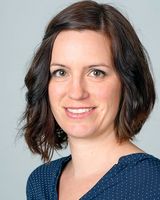 Tanja Barth-Jaeggi
Tanja Barth-Jaeggi
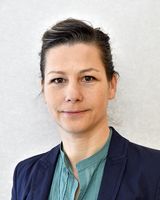 Helena Greter
Helena Greter
 Michael Käser
Michael Käser
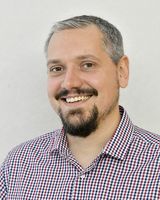 Fabian Schär
Fabian Schär
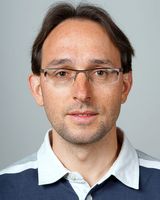 Peter Steinmann
Peter Steinmann
 Leon Stieger
Leon Stieger
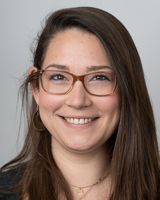 Anna Stürmann
Anna Stürmann